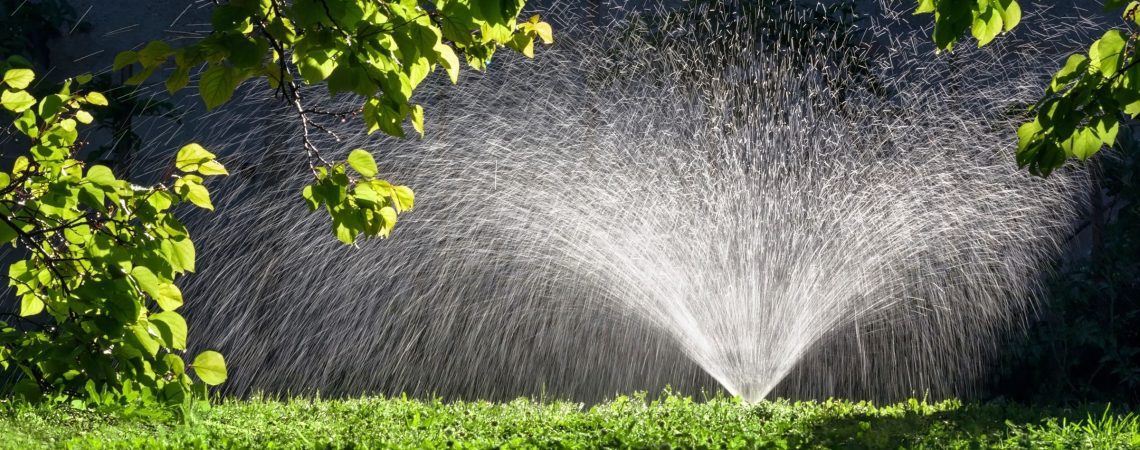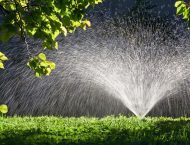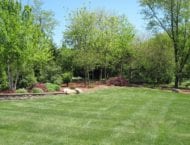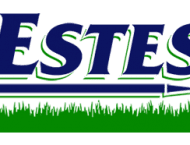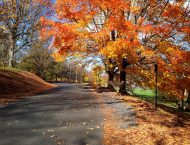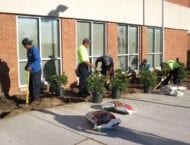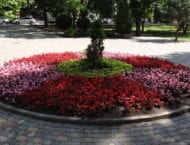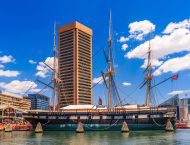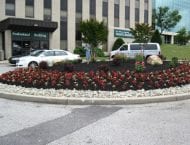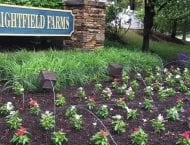Efficient water management is a critical aspect of sustainable commercial landscaping. In an era of environmental consciousness and increasing water costs, it’s vital for businesses to adopt smart irrigation solutions. At Estes Landscaping, we’re dedicated to helping our clients implement efficient and effective water management systems. Here’s a look at some key irrigation solutions that can help your business save water and maintain a lush, healthy landscape.

1. Smart Irrigation Systems
Modern irrigation systems use technology to optimize water use. Smart controllers can adjust watering schedules based on weather conditions, soil moisture levels, and plant water needs, ensuring that your landscape receives the right amount of water at the right time.
2. Drip Irrigation
Drip irrigation is a highly efficient method of watering plants directly at their roots, minimizing water loss due to evaporation or runoff. It’s particularly effective for watering individual plants, garden beds, and even container plantings.
3. Rain Sensors and Soil Moisture Sensors
Installing rain and soil moisture sensors can significantly improve water efficiency. These devices automatically adjust irrigation schedules based on rainfall and soil moisture, preventing unnecessary watering.
4. Water-Efficient Sprinkler Heads
Replacing traditional sprinkler heads with water-efficient models can reduce water usage. Look for options like rotary nozzles or high-efficiency spray heads designed to reduce evaporation and wind drift.
5. Zoning Your Landscape
Segmenting your landscape into different “zones” based on plant type and water needs allows for more targeted irrigation. This means that each area of your landscape gets exactly the amount of water it needs, reducing waste.
6. Regular Maintenance and Audits
Regularly inspecting and maintaining your irrigation system is crucial. Check for leaks, broken sprinkler heads, and blockages. Periodic audits by a professional can help identify inefficiencies and areas for improvement.
7. Using Mulch
Mulch helps retain soil moisture and reduce evaporation. Incorporating organic mulch in your landscape beds can significantly reduce the need for frequent watering.
8. Rainwater Harvesting
Collecting and using rainwater for irrigation is an excellent way to reduce reliance on municipal water supplies. Rain barrels or more complex rainwater harvesting systems can be incorporated into your landscape design.
9. Educating Staff and Clients
Educating your team and clients about water conservation practices is also key. The more they understand the importance and benefits of efficient water use, the more likely they are to support and maintain these practices.
10. Choosing Water-Smart Plants
Opt for native or drought-tolerant plants that require less water. These plants are adapted to local conditions and can thrive with minimal irrigation once established.
Conclusion
Implementing efficient irrigation solutions is not just good for the environment; it’s also a cost-effective strategy for your business. At Estes Landscaping, we’re committed to helping you achieve a sustainable, beautiful landscape with innovative water management practices. Let’s work together to conserve this precious resource.

